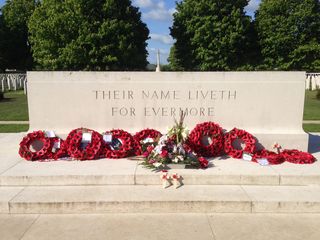This post is an installment in the Focus on Forms series, which considers and discusses some of the most common forms associated with Department of Veterans Affairs (VA) pension claims. The goal of this post – like all those in the Focus on Forms series – is threefold: to define the purpose of the forms; to discuss how they should be completed; and to recommend what to file with these forms. Today’s subject is the forms related to third parties that may be involved in a pension claim, specifically, the 21-22a and the 21-0845.
 Purpose of the 21-22A and the 21-0845
Purpose of the 21-22A and the 21-0845
The VA forms 21-22a and 21-0845 are used to establish representation of a claimant by a third party and authorize the release of information to a third party, respectively. The VA does not recognize Powers of Attorney and will only speak or release information to a claimant unless a third party has been recognized by the VA as the claimant's authorized representative or recipient of personal information. The only other person who would be able to communicate or obtain information from the VA regarding a claimant would be the person appointed as fiduciary after an award has been adjudicated and when a claimant has been deemed incompetent. These forms do not have any impact on the processing of the VA claim other than to identify to whom the VA can disclose information. If there is no third party representing the claimant, these forms do not need to be submitted to the VA.
Form 21-22a is entitled, “Appointment of Individual as Claimant’s Representative” and is to be used by accredited attorneys, accredited agents, private individuals, or service organization representatives who want to be recognized in the “preparation, presentation, and prosecution of claims for VA benefits for a particular claimant.” It is a two-page form with instructions embedded in the fields. The individual named on this form should be copied on all correspondence issued by the VA regarding the claimant.
Form 21-0845 is the Authorization to Disclose Personal Information to a Third Party and was recently updated by the VA. The current version is dated May 2015 on the lower left corner of the form. The new version is available in the latest release of the Lawyers with Purpose VA software. It consists of a single page with an introductory first page of general information and specific instructions. It is used to identify non-accredited third parties that can be given information about the claim, but it does not imply that these parties in any way “represent” the claimant. For example, a child, home health care company or assisted living facility may be listed as having authority to obtain information. Note that forms 21-0845 signed by VA beneficiaries who have been deemed incompetent will not be accepted. Therefore, it is best practices to have the claimant sign this form before submitting a claim for benefits, which is a time frame wherein the VA presumes the person is competent.
Completing the 21-22a and the 21-0845
Both of these forms are fairly straightforward. Per the Respondent Burden field in the upper right corner of these files, they should each take no more than 5 minutes to complete. This is an accurate assessment. What is likely to take more time on the VA form 21-22a is getting all the necessary signatures in the appropriate places. It can be confusing, but the claimant and the representative each sign twice – once on each page. Most of the other fields are self-explanatory. An important feature that may easily be overlooked on the 21-22a is a cleverly hidden field that has no number. It is on the second page in the section called “Conditions of Appointment.” The very fine print here indicates that if the individual named on the form as representative is “an accredited agent or attorney, this authorization includes the following individually named administrative employees of my representative.” In the space that follows, you may list all such non-accredited team members who may need to call the VA regarding the status of a claim.
The 21-0845 has similar fields to those in the 21-22a, with the notable exception that the latest version of the 21-0845 now sports the individual character boxes to aid the VA in computer processing of forms at intake. The 21-0845 also allows you to select a security question and answer that you may need to provide as confirmation that you are the person identified when you telephone the VA.
What to file with the 21-22a and the 21-0845
There is nothing in particular that is required to be filed with either of these two forms. They both should be submitted with an Intent to File a Claim or the Fully Developed Claim. They should also be included with any other correspondence you may need to address to the VA, particularly when the third party is the individual signing the correspondence.
The individual appointed as the claimant’s representative on the form 21-22a will automatically be authorized to receive the information accessible by the form 21-0845. So you may ask, why file the 21-0845 in addition to the 21-22a? Some VA call center agents employ the extra security layer provided by the form 21-0845 and will require the response to the security question before they release any information over the telephone. Furthermore, you cannot have more than one 21-0845 on file with the VA at any one time. By filing one with your client’s claim, you ensure from the outset that your firm is the only third party with access to that claim information. Subsequent 21-0845s that are filed will not replace the active one on file until the claimant has notified the VA that he/she wishes to withdraw it.
As mentioned above, neither of these forms will directly affect the adjudication of a pension claim, but when in place they allow you to manage the claim more effectively. Without the powers these forms bestow, you are dependent on receiving information secondhand and perhaps not in a timely manner, which can in turn lead to unnecessary denials.
If you want to sharpen your VA technical legal saw, we offer a free "VA Tech School" webinar the first Wednesday of every month. Click here and join us on Wednesday, October 7th at 12 EST. This month's topic is "Denied Benefits Due to Transfers of Assets: How to Appeal and Win!" Register today!
By Sabrina A. Scott, Paralegal, The Elder & Disability Law Firm of Victoria L. Collier, PC and Director of VA Services for Lawyers with Purpose.
Victoria L. Collier, Veteran of the United States Air Force, 1989-1995 and United States Army Reserves, 2001-2004. Victoria is a Certified Elder Law Attorney through the National Elder Law Foundation; Author of “47 Secret Veterans Benefits for Seniors”; Author of “Paying for Long Term Care: Financial Help for Wartime Veterans: The VA Aid & Attendance Benefit”; Founder of The Elder & Disability Law Firm of Victoria L. Collier, PC; and Co-Founder of Lawyers With Purpose, www.LawyersWithPurpose.com.




















